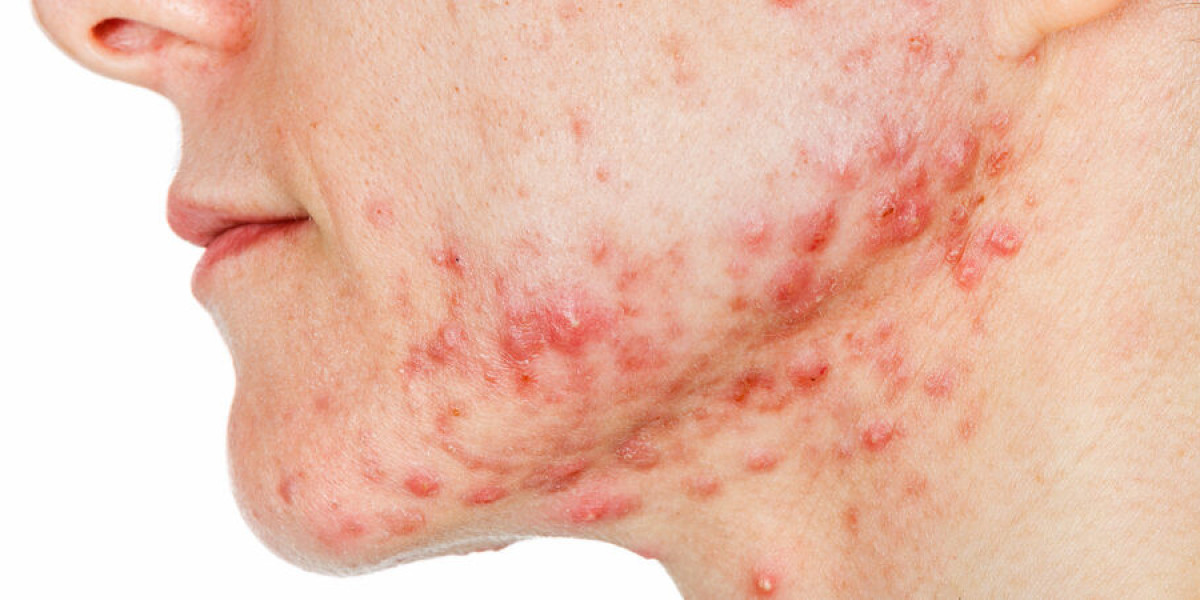Acne is a prevalent skin condition that affects millions of individuals worldwide, regardless of age or gender. Acne, ranging from minor pimples to severe cystic eruptions, can have a substantial influence on self-esteem and quality of life. While numerous over-the-counter medications and therapies are available, many people in Greater Kailash seek advice from dermatologists to manage their acne effectively. In this post, we’ll look at dermatologist-recommended acne treatment in Greater Kailash, including the most effective skincare routines, and professional interventions to tackle this bothersome condition.
Understanding the complexities of acne and its treatments allows one to make informed selections based on their own skin needs. Let’s get this started.
What Do Most Dermatologists Recommend For Acne?
Dermatologists often advocate for multimodal acne treatment options that consider individual variances in skin type, acne severity, and underlying reasons. These recommendations are based on a commitment to gentle skincare methods, focusing on non-comedogenic cleansers to prevent pore clogs and minimize irritation. Dermatologists frequently prescribe topical retinoids, to increase skin cell turnover, clear pores, and reduce acne development. Oral antibiotics may also be used to treat inflammatory acne by targeting bacterial growth and inflammation.
In addition to traditional treatments, skin doctors are increasingly recommending complementary therapies such as probiotics, tea tree oil, and azelaic acid, which have been shown to reduce acne severity and frequency. Furthermore, lifestyle changes such as stress management strategies, dietary alterations, and regular exercise are essential components of dermatologist-recommended acne therapy plans, as they target the underlying causes of acne development.
What are the Dermatologically Approved Acne Treatments?
The acne treatment option is chosen based on the severity of the condition, the patient’s age, and overall health. Based on the severity of acne the treatments suggested by a skin doctor include:
Mild Acne: Numerous over-the-counter medicinal lotions, cleansers, and spot treatments are available for mild acne. These include substances such as benzoyl peroxide and salicylic acid.
Moderate Acne: If acne breakouts persist after several weeks of utilizing pharmacy acne medications, seeing a dermatologist is the best option. Dermatologists propose topicals including prescription-strength benzoyl peroxide, retinoids such as retinol, and/or antibiotics. Oral prescription antibiotics and hormonal birth control can help some patients manage their acne.
A skilled dermatologist will recommend treating severe acne with a combination of benzoyl peroxide, oral antibiotics, topical antibiotics, and topical retinoids. The doctor will suggest medical procedures that reduce sebum production and remove damaged skin to treat severe acne and prevent acne scarring.
Below are some of the medically approved treatments for acne:
- Chemical Peel — A chemical exfoliation treatment in which a dermatologist administers an acid solution to acne-prone or blemished skin to remove the top layers of skin and reveal clear, fresh, smooth skin beneath. The acid solution reduces sebum production by sebaceous glands. The best peels for acne treatment are glycolic acid and salicylic acid. Multiple treatment sessions are needed to achieve the desired clear skin.
- Carbon Laser Peel — In this laser skin resurfacing technique, the skin to be treated is first coated with liquid charcoal, which is then left for drying. As carbon cream dries, the activated carbon absorbs skin pollutants, excess sebum, and dead skin cells. Next, laser light pulses are utilized to burn and destroy the carbon, breaking it down into smaller particles. These particles, together with the compounds they have adsorbed, are eventually removed from the skin by immune cells. Simultaneously, the laser produces heat, which destroys acne-causing bacteria while promoting new collagen creation deep within the skin. All this leads to clear skin.
- Cortisone Injections — This acne treatment can help reduce inflammation in inflamed lesions and promote healing. It is typically prescribed in conjunction with other severe acne treatments.
What are some Dermatologist Approved Tips for Acne Prevention?
Acne outbreaks are not entirely avoided. However, several at-home measures might help lessen the likelihood of developing acne breakouts. They are:
- Daily, wash the face twice with an oil-free, mild cleanser.
- To maintain healthy skin, wash or shower the face after exercise, sweating, or returning home.
- Avoid using oily skincare products or make-up.
- Make some efforts to reduce stress. Stress can also lead to the production of the hormone cortisol which can lead to excess sebum production causing acne.
- Avoid wearing tight garments in acne-prone regions.
- Always remove the make-up before going to bed.
- To avoid oily hair on the face, maintain a balanced diet and drink lots of water.
- Avoid chemicals that cause acne outbreaks.
What is the Recommended Skincare for Severe Acne?
Severe acne, characterized by deep cysts, nodules, and extensive inflammation, presents major therapy and management issues. Dermatologists use a multimodal strategy to treat severe acne, combining topical medicines, systemic therapy, and procedural interventions to produce the best results. Isotretinoin, a strong oral retinoid also known as Accutane, is a key component of severe acne treatment, with significant effects on sebum production, inflammation, and acne lesion formation.
In addition to oral retinoids, doctors may offer specific skincare regimens to treat severe acne symptoms, such as mild cleansers, moisturizing serums, and oil-free moisturizers. These products aim to reduce the dryness, irritation, and barrier dysfunction that are prevalent with severe acne treatments, hence improving skin comfort and treatment response.
Contact the Best Skin Specialist in South Delhi for Acne Treatment
Acne affects the majority of people at some point. The efficacy of preventative strategies is not always guaranteed. Hormones, stress, heredity, and food are all potential causes of pimples. Certain drugs might also induce breakouts. Nevertheless, there are numerous options for managing and curing pimples. Those looking for an effective acne treatment should contact a skilled dermatologist. One can consult the best skin specialist in South Delhi at DermoRita Skin Clinic. This skin clinic is managed by a leading dermatologist Dr. Sarita Sanke.
The expert doctor has over a decade of experience in treating acne and other skin-related conditions like pigmentation, aging, eczema, warts, and many more. The doctor emphasizes the importance of patience and consistency in any pimple prevention technique. One pimple may shrink overnight with a dab of benzoyl peroxide, but most other treatments take several weeks to show results. Thus, getting guidance from the doctor will help. The doctor also offers aesthetic treatments like varied medical facials, bridal dermatological treatments for both groom and bride’s skincare
Visit DermoRita Skin Clinic to consult Dr. Sarita Sanke for the best acne treatment!
Original Source:- https://www.apsense.com/article/810336-how-can-acne-be-treated-learn-dermatologically-approved-treatments.html








